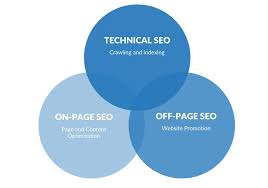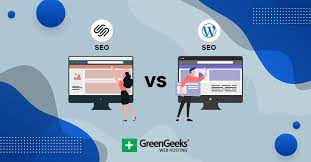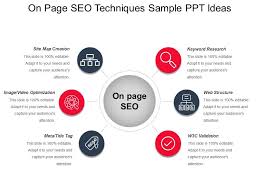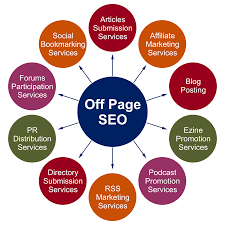Exploring the Different Types of SEO Strategies
Exploring Different Types of SEO
Search Engine Optimization (SEO) is a crucial aspect of digital marketing that helps websites rank higher in search engine results pages. There are several types of SEO strategies that businesses can implement to improve their online visibility and attract more organic traffic. Let’s delve into some common types of SEO:
On-Page SEO
On-page SEO focuses on optimizing individual web pages to improve their search engine rankings and attract relevant traffic. This includes optimizing meta tags, headings, content, images, and internal linking structure. By ensuring that each page is well-structured and contains relevant keywords, businesses can enhance their on-page SEO.
Off-Page SEO
Off-page SEO refers to activities conducted outside the website to improve its search engine rankings. This includes building backlinks from reputable websites, social media marketing, influencer outreach, and online reputation management. Off-page SEO helps establish the authority and credibility of a website in the eyes of search engines.
Technical SEO
Technical SEO involves optimizing the technical aspects of a website to improve its crawling and indexing by search engines. This includes optimizing site speed, mobile-friendliness, URL structure, XML sitemaps, and schema markup. By ensuring that a website is technically sound, businesses can enhance their technical SEO performance.
Local SEO
Local SEO focuses on optimizing a website for local searches to attract nearby customers. This includes creating Google My Business listings, local citations, customer reviews, and geo-targeted content. Local businesses can benefit from local SEO by appearing in local map packs and attracting foot traffic to their physical locations.
Voice Search SEO
Voice Search SEO involves optimizing a website for voice-activated search queries made through virtual assistants like Siri or Alexa. This includes using natural language keywords, providing concise answers to common questions, and structuring content for featured snippets. With the rise of voice search technology, businesses can adapt their SEO strategies to cater to voice search users.
In conclusion, implementing a combination of these types of SEO strategies can help businesses improve their online presence and reach their target audience effectively. By staying abreast of the latest trends in the ever-evolving world of digital marketing, businesses can stay ahead of the competition and drive sustainable growth through effective SEO practices.
8 Advantages of Different SEO Types: Boosting Visibility, Traffic, and Credibility
- Enhances online visibility
- Increases organic traffic
- Improves search engine rankings
- Boosts website credibility and authority
- Targets specific audience segments
- Helps in attracting local customers
- Adaptable to changing search engine algorithms
- Provides long-term sustainable results
Challenges in SEO: Navigating Complexity, Competition, and Algorithm Changes
Enhances online visibility
Implementing different types of SEO strategies enhances online visibility by ensuring that a website ranks higher in search engine results pages. By optimising on-page elements, building authoritative backlinks, and focusing on technical aspects, businesses can improve their visibility to their target audience. Local SEO tactics help businesses appear in local searches, while voice search SEO ensures compatibility with voice-activated search queries. Overall, a comprehensive approach to SEO not only boosts a website’s visibility but also increases its chances of being discovered by potential customers, ultimately driving organic traffic and improving online presence.
Increases organic traffic
Implementing various types of SEO strategies can significantly boost a website’s organic traffic. By optimising on-page elements, building quality backlinks through off-page SEO, ensuring technical aspects are in order, focusing on local SEO for targeted audiences, and adapting to voice search trends, businesses can attract a higher volume of relevant visitors to their websites. Increased organic traffic not only enhances visibility in search engine results but also leads to higher engagement and potential conversions, ultimately driving business growth and success in the digital landscape.
Improves search engine rankings
Implementing various types of SEO strategies can significantly enhance a website’s search engine rankings. By focusing on on-page SEO, off-page SEO, technical SEO, local SEO, and voice search SEO, businesses can improve their visibility in search engine results pages. Optimising content with relevant keywords, building quality backlinks, ensuring technical aspects are in order, targeting local audiences effectively, and adapting to voice search trends all contribute to boosting a website’s ranking on search engines. As a result, higher rankings lead to increased organic traffic and better online visibility for businesses looking to stand out in the digital landscape.
Boosts website credibility and authority
Implementing various types of SEO strategies can significantly boost a website’s credibility and authority in the digital landscape. By focusing on on-page SEO, off-page SEO, technical SEO, local SEO, and voice search SEO, businesses can enhance their online presence and establish themselves as reputable sources of information in their respective industries. Search engines value websites that demonstrate expertise, trustworthiness, and relevance, and by employing diverse SEO tactics effectively, businesses can improve their rankings and earn the trust of both search engines and users alike. This increased credibility and authority not only lead to higher visibility in search results but also foster long-term relationships with customers who value authenticity and expertise.
Targets specific audience segments
One significant advantage of employing different types of SEO strategies is the ability to target specific audience segments effectively. By tailoring SEO efforts to address the unique preferences, behaviours, and needs of distinct audience groups, businesses can enhance their visibility among the right demographics. This targeted approach not only increases the chances of attracting relevant traffic but also improves conversion rates as it connects businesses with audiences most likely to engage with their products or services. Ultimately, targeting specific audience segments through SEO can lead to more meaningful interactions, higher customer satisfaction, and increased brand loyalty.
Helps in attracting local customers
Optimizing a website for local SEO is a valuable strategy that can significantly benefit businesses by helping them attract local customers. By implementing local SEO techniques such as creating Google My Business listings, local citations, and geo-targeted content, businesses can enhance their visibility in local search results. This targeted approach ensures that potential customers in the vicinity are more likely to discover the business online and engage with its products or services. Ultimately, attracting local customers through effective local SEO not only boosts foot traffic to physical locations but also strengthens the business’s connection with the community, fostering long-term customer relationships and loyalty.
Adaptable to changing search engine algorithms
One significant advantage of implementing different types of SEO strategies is their adaptability to changing search engine algorithms. Search engines like Google frequently update their algorithms to enhance user experience and deliver more relevant search results. By diversifying SEO tactics such as on-page, off-page, technical, local, and voice search SEO, businesses can stay agile and adjust their strategies to align with the latest algorithm updates. This adaptability ensures that websites can maintain or improve their search engine rankings despite algorithm changes, ultimately helping them remain competitive in the dynamic digital landscape.
Provides long-term sustainable results
One significant advantage of employing various types of SEO strategies is that they offer long-term sustainable results for businesses. By implementing effective SEO practices such as on-page optimization, off-page link building, technical enhancements, and local SEO efforts, businesses can establish a strong online presence that continues to yield organic traffic and visibility over time. Unlike short-term marketing tactics, the long-lasting impact of well-executed SEO campaigns ensures that businesses can maintain their search engine rankings and attract relevant traffic consistently, leading to sustained growth and success in the digital landscape.
Complexity
Navigating the realm of SEO can be a daunting task due to its inherent complexity. Implementing a diverse range of SEO strategies demands a significant investment of time and expertise, as it involves staying abreast of search engine algorithms and industry best practices. The intricacies of on-page, off-page, technical, local, and voice search SEO require a deep understanding to effectively enhance online visibility and attract organic traffic. Businesses must be prepared to dedicate resources to unravel the complexities of SEO in order to navigate the digital landscape successfully and achieve sustainable growth.
Competition
In the realm of SEO, one significant drawback is the escalating competition that arises as an increasing number of businesses allocate resources towards enhancing their online visibility. This surge in SEO investments results in a fierce battle for prime search engine rankings, creating a saturated and competitive online landscape. Consequently, standing out amidst the crowd becomes a daunting task for businesses, requiring innovative strategies and continuous efforts to differentiate themselves and capture the attention of their target audience in this highly competitive digital arena.
Algorithm Changes
One significant drawback of SEO is the constant changes in search engine algorithms. Search engines like Google frequently update their algorithms, which can result in fluctuations in website rankings. This means that businesses need to continually monitor these changes and adjust their SEO strategies accordingly to maintain or improve their search engine visibility. Keeping up with algorithm updates can be challenging and time-consuming, requiring businesses to stay informed and agile in their approach to SEO to adapt effectively to the evolving digital landscape.









